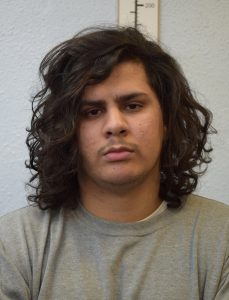The Met is urging people to report terrorist content they come across online, after a man was jailed for sharing terrorist propaganda on social media following a counter-terrorism investigation by the Met.
Mohammad Zubair Khan, 22, of West London, shared a number of Daesh videos glorifying terrorism on various online platforms over an 18-month period.

He was investigated by the Met’s Counter Terrorism Command after officers found that he had posted an extremist video on Twitter in May 2021. He was arrested in November 2021.
Khan admitted to multiple terrorism offences at the Old Bailey in November 2022, and was sentenced on Friday, 9 June, to four years’ imprisonment and one year on licence.
Commander Dominic Murphy, who leads the Met’s Counter Terrorism Command, said:
“Terrorist groups like Daesh produce online content to try and radicalise and recruit others, and encourage them to commit terrorist acts. Suspects being exposed to, and seeking out this kind of material is a feature of many of our terrorism investigations. But we have a specialist team which is proactive in finding this kind of harmful content, and working with online media companies to get it removed quickly.
“The public can also play a vital role – we would urge anyone who sees extremist content on social media, or on a website to report it straight away. We will investigate where appropriate, and act to get this dangerous propaganda taken down.”
Extreme online content can be reported online and anonymously via gov.uk/report-terrorism
It can also be reported via the iREPORTit app.
An investigation was launched in June 2021 after officers from the Counter Terrorism Internet Referral Unit (CTIRU) were made aware of a video produced by a proscribed terrorist organisation which had been posted on Twitter.
Through their enquiries, they discovered that the account that had posted it was linked to Mohammad Khan.
After completing further enquiries, on 16 November 2021 officers attended Mohammad’s home address with a warrant to search the property. Mohammad was arrested under Section 41 of the Terrorism Act 2000.
His devices was seized and analysed by the National Digital Exploitation Service (NDES).
From this, they were able to identify other instances where extremist material – Islamist terrorism propaganda videos, featuring Daesh fighters and depicting extreme violence – had been downloaded and then shared with others on messaging apps by Khan.
Officers also found messages where Khan praised the activities of terrorist groups abroad.
Upon being interviewed, he denied supporting any terrorist causes.
Mohammad Khan, 22 (12/07/2000), was charged on Monday, 22 November with eight counts of dissemination of terrorist material (contrary to Section 2 of the Terrorism Act 2006).
He initially denied the charges, and was due to stand trial – however, he pleaded guilty just prior to the trial start date on 9 November 2022.
Co-defendant Ayub Khan, 19 (28.08.02), was found not guilty of three counts of dissemination of terrorist material, and one count of possession of an article connected with the commission of an act of terrorism following a trial which concluded on 16 December 2022.
The Counter Terrorism Internet Referral Unit (CTIRU), part of the Counter Terrorism Policing network, has national responsibility for the investigation of terrorist content.
Visit actearly.uk to find out how you can seek help and support for anyone who you suspect may be being radicalised.
Communities defeat terrorism, and information from the public is vital to counter terrorism investigations. If you see or hear something unusual or suspicious and think someone may be engaging in terrorist activity, trust your instincts and act by reporting it in confidence at gov.uk/ACT or the anti-terrorist hotline on 0800 789 321. In an emergency, dial 999.
